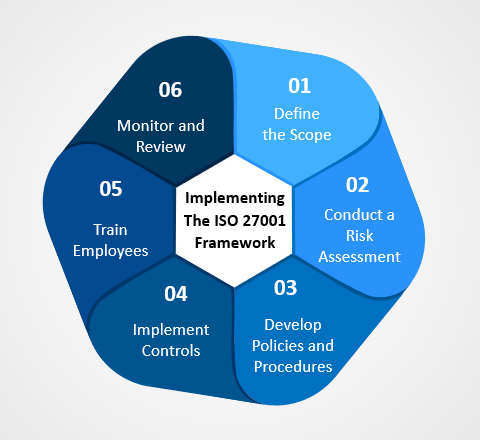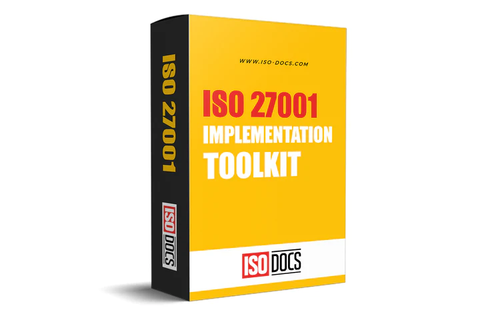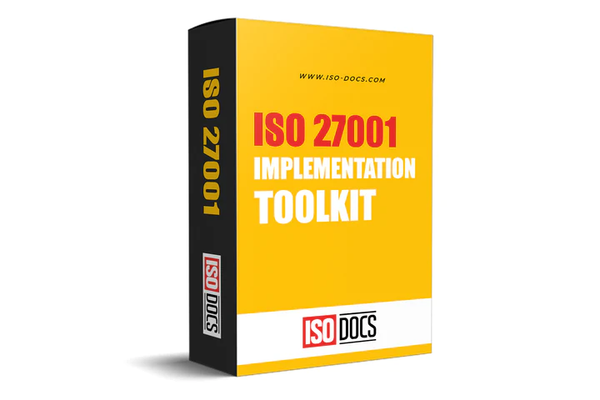ISO 27001 Framework
Overview
ISO 27001 is an internationally recognized framework that provides a set of standards for efficiently implementing and maintaining information security management systems (ISMS). The framework provides a structure to manage and secure their information assets and ensure the confidentiality, availability, and integrity of that information.
Compliance with ISO 27001 is an essential prerequisite for organizations that are bidding for contracts with government departments or with businesses that require high levels of data security.

Importance of ISO 27001 Framework
The ISO 27001 framework provides a structured approach to information security management, ensuring that sensitive data is protected against cyber threats. Implementing the ISO 27001 framework helps organizations in several ways, including:
1. Providing legal and regulatory compliance: With the increasing number of data breaches, governments around the world are enacting laws and regulations that require businesses to protect sensitive data. Implementing the ISO 27001 standard helps organizations comply with these requirements.
2. Enhancing customer trust: Customers expect businesses to protect their data from cyber threats. By implementing the ISO 27001 framework, organizations can demonstrate their commitment to data protection, enhancing customers' trust.
3. Reducing the risk of cyber threats: The ISO 27001 standard provides a systematic approach to assessing and managing risks associated with sensitive data. Implementing this framework helps organizations identify and mitigate potential vulnerabilities, reducing the risk of cyber threats.
Implementing The ISO 27001 Framework
Some of the key pointers that businesses need to keep in mind while implementing the ISO 27001 framework are as follows:
1. Define the Scope of the Information Security Management System (ISMS): Before implementing the ISO 27001 framework, businesses need to ensure that they have a clear understanding of the scope of their ISMS. This includes identifying the assets that need to be protected and the risks that are associated with them.
2. Conduct a Risk Assessment: A critical aspect of implementing the ISO 27001 framework is conducting a risk assessment. This involves identifying and assessing the risks that could impact the confidentiality, integrity, and availability of information assets.
3. Develop Policies and Procedures: Once businesses have identified the risks, they need to develop policies and procedures that will help them manage and mitigate these risks. These policies and procedures should be aligned with the ISO 27001 standard and should be communicated to all stakeholders.
4. Implement Controls: Businesses need to implement controls that will help them manage the risks identified during the risk assessment. These controls could be technical, physical, or administrative in nature. It is essential to ensure that these controls are aligned with the ISO 27001 standard and are implemented consistently.
5. Train Employees: Employees play a significant role in ensuring the security of information assets. Therefore, it is essential to ensure that they are adequately trained on the policies and procedures that have been implemented.
6. Monitor and Review: The ISO 27001 framework requires businesses to monitor and review their ISMS continuously. This involves measuring the effectiveness of the policies and procedures that have been implemented and identifying areas that require improvement.
In conclusion, implementing the ISO 27001 framework requires careful planning and attention to detail. By following these pointers, businesses can strengthen their security posture and ensure that their information assets are protected from potential threats.
Benefits of ISO 27001 Framework
Some of the key advantages of adopting the ISO 27001 framework are as follows:
1. Enhanced Information Security: The foremost benefit of implementing the ISO 27001 framework is the provision of enhanced information security. By defining a comprehensive structure of policies, procedures, and controls, the framework helps in identifying and mitigating potential information risks effectively.
2. Compliance with Regulations: Adhering to regulatory compliance is a must for all organizations. ISO 27001 provides a structured approach to maintain organization's compliance with regulatory requirements such as GDPR, HIPAA, or PCI-DSS.
3. Improved Business Reputation: Securing sensitive information through ISO 27001 implementation can lend a significant boost to an organization's overall reputation. Customers, partners, and stakeholders are more likely to trust an organization that can ensure the safety of their data
4. Cost Savings: Implementation of the ISO 27001 framework can have a positive impact on an organization's cost structure as well. It helps in identifying and mitigating potential risks to information assets, which can eventually lead to cost savings.
5. Continuous Improvement: ISO 27001 promotes a culture of continuous improvement in information security management. Regular monitoring, review, and improvements in the framework can help in maintaining the organization's security posture, which in turn can help in avoiding incidents such as data breaches.
Conclusion
The ISO 27001 Framework is an effective standard for managing information security and privacy risks. Implementation of the framework provides several benefits, including enhanced information security, compliance with regulations, business continuity, and a competitive advantage.



